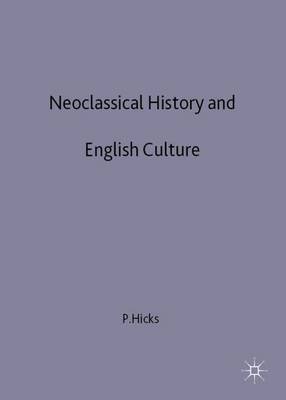Studies in Modern History
1 total work
This book looks at neo-classicism as a context for understanding early-modern English historical writing, and traces the implications of neo-classical history for English political culture at large. By paying close attention to historical genres and audiences, it reassesses both the famous and lesser-known historians of this era, dramatizing them as engaged in a struggle to preserve ancient models of historical composition in the face of a rapidly modernizing society characterized by party politics, print, Christianity, and antiquarian erudition.
